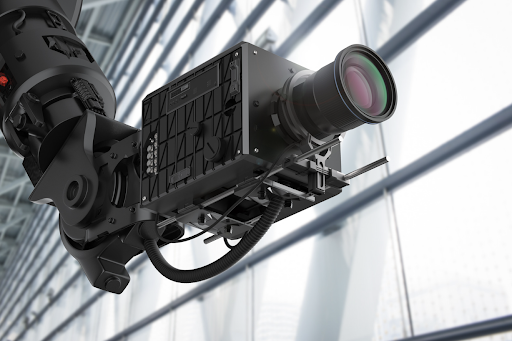
Will AI be creating your next favorite show or movie?
The film and television industries have transformed and exploded over the past 70 years. From the time the first color television hit the market in 1953 to being able to stream on any device ranging from cell phones and tablets to flat screen TVs, consumers have stayed in love with movies and television.
In recent years, AI has revolutionized numerous industries, and filmmaking is no exception. One of the most notable ways AI aids in movie creation is through enhanced visual effects (VFX). Traditional VFX can be labor-intensive, often requiring meticulous frame-by-frame adjustments. With the assistance of AI, filmmakers can generate realistic animations, environments, and even characters at a fraction of the time and cost. Advanced algorithms can analyze and reproduce complex visual elements, from the play of light on water to the intricate details of a fantastical creature, elevating the visual spectacle and realism of a film.
Another groundbreaking application of AI in cinema is its potential for scriptwriting and story development. Algorithms can sift through vast databases of existing scripts, identifying patterns, trends, and elements that resonate with audiences. By processing this information, AI can suggest plot points, character developments, or even entire story arcs that are likely to captivate viewers. This is not to say that AI will replace human creativity, but it can certainly serve as a collaborative tool, offering filmmakers insights and suggestions based on a comprehensive analysis of cinematic history.
AI is reshaping the realm of post-production. Film editing, traditionally a painstaking and time-consuming process, can be expedited with AI’s ability to swiftly analyze hours of footage to pinpoint the best shots, based on predefined criteria like lighting, composition, or actor performance. Sound design can also benefit, with AI capable of automatically adjusting audio levels, removing background noise, or even generating sound effects that perfectly match on-screen actions. By integrating AI tools into the post-production process, filmmakers can ensure that their vision is realized with greater precision and efficiency, paving the way for a new era of cinematic masterpieces.
The evolution of these industries is not done. Now, with the massive growth of AI, we may see more film companies and streaming services utilize AI in a few major ways, according to AI expert and Head of Applied Machine Learning and Platform at Iterate.ai, Shomron Jacob
1. Better and more personalized recommendation systems:
Using AI algorithms, content providers can analyze the viewing habits of each individual user to provide personalized recommendations for movies, TV shows, and other forms of entertainment.
2. Content Creation, Scriptwriting and Storytelling:
AI can help filmmakers and scriptwriters create new content by analyzing data on what’s been successful in the past and identifying patterns that could guide new creative endeavors.
3. Post-Production Assistance and Editing:
AI can help with post-production tasks such as editing and special effects. For example, AI can use machine learning to identify and remove unwanted objects or people from film scenes, cutting down the amount of tedious time needed to do so. Additionally, AI-powered image recognition algorithms can automate the process of tagging and organizing large amounts of raw footage, saving time for filmmakers. AI-based video editing tools can analyze scenes, identify key moments and generate automatic edits or suggestions.
4. Audio Enhancement:
Sound is a crucial part of the movie-watching experience, and background noise can sometimes interfere with dialogue. AI can help enhance the audio in movies by isolating vocals and separating them from other sounds in the audio track.
5. Visual Effects and CGI:
AI can significantly enhance the creation of visual effects (VFX) and computer-generated imagery (CGI) in films. Deep learning algorithms can analyze large datasets to generate realistic visual effects, simulate physics or create lifelike virtual characters.
“AI is revolutionizing industries across the globe, and the film industry is no exception. AI and ML are emerging as powerful tools for everything from predictive analytics in marketing to streamlining post-production processes. These technologies can significantly enhance efficiency, reduce laborious editing tasks, and provide invaluable insights into audience preferences. This not only aids the creative process but also tailors a more gratifying viewing experience for the audience. The result? A transformative impact on film production and consumption, promising better content, delivered faster for all movie and television enthusiasts,” explains Jacob.
Iterate.ai is an AI-powered low code software and ecosystem intended to accelerate innovation projects within large enterprises.
Recently listed as one of the The KMWorld’s AI 100, Iterate’s platform accelerates the development and deployment of AI-centric enterprise applications and their low-code environment empowers them to develop and deploy digital solutions faster, enabling enterprises to go to market 17x faster with their digital initiatives.



